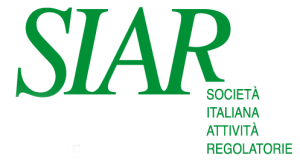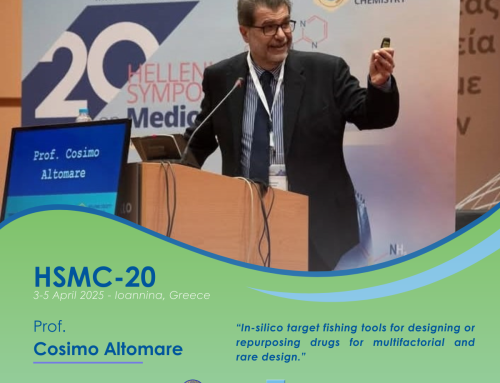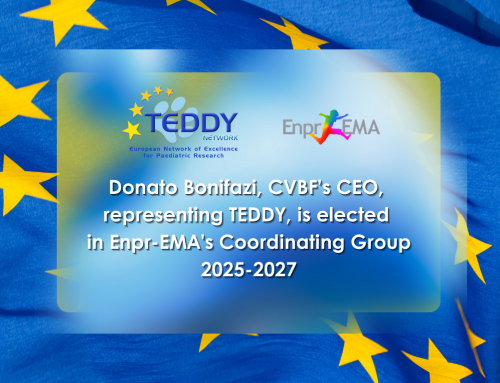
Access to the drug and reimbursement: a two-speed Europe? We talked about it to Dr. Enrico Bosone, president of SIAR (Italian Society for Regulatory Activities), a non-profit organization whose membership comprises about 200 professionals in Italy involved in regulatory activities related to the regulation of those products, including drugs, which require a production and/or marketing authorisation provided by Health Authority. The association’s objectives are to study and understand the regulation in the field of drugs, medical devices, food and food supplements, as well as the constant updating about laws and documents issued by the Italian, European and non European authorities, and the promotion of cooperation with the competent authorities and public and private institutions involved in the regulatory activities. To achieve these objectives, SIAR has established several working groups: the first deals with the R & D and has published a practical manual on clinical trials in Italy; the second deals with medical and scientific information, and organizes seminars to disseminate the results of the scientific activities; the third deals with access to the drug by patients.
What is meant by “access to the drug?”. “In the European Union, access means reimbursement” – explains Dr. Bosone, “This is because the medicines, especially the most innovative ones, are often expensive and, in principle, are reimbursed by the National Health Service in each country, which supplies them to patients free of charge or by a modest ticket payment (as in Italy). It happens, however, that normally a delay is generated between the marketing authorization and the reimbursement, or the availability of the drug to the patients, which in Europe varies from country to country. In fact there are two types of marketing authorization“, clarifies Dr. Bosone,”the first one is issued by the local authorities that follow the relevant national procedures or mutual recognition, which in Italy is governed by the Italian Medicines Agency (AIFA) and is published in the Italian Official Journal; the second one is obtained through the “centralized procedure” which is released by the European Commission, following a positive opinion from the CHMP of the EMA (the European Committee deputy to the scientific evaluation of the benefit / risk ratio which is part of the European Medicines Agency, located in London) and published in the EU Official Journal. This European marketing authorization is immediately valid for all twenty-eight EU countries, including Italy. However, until reimbursement is granted at a national level, these drugs, although authorized by the European Commission, are not really available for patients due to lack of the classification and reimbursement at national level (the classification and reimbursement may require even more than a year).”
In this context, the SIAR conducted two investigations to study and compare national legislations and the reimbursement procedures for drugs in the seven major European countries (Italy, France, Spain, Germany, England, Belgium and the Netherlands) and to portray what happened to the repayment timelines of a significant sample represented by orphans drugs and anticancer drugs approved in Europe by the European Commission between July 2012 and the end of 2014. These two categories of drugs are among the most onerous ones, and cause more problems to national health services, in terms of reimbursement. The survey, whose results will be published on the SIAR NEWS magazine, pointed out that the only country with a law that lets the drugs to be available at very short notice is Germany. In fact, in Germany there is an almost automatic mechanism for reimbursement for all drugs approved by the European Commission. Subsequently, in Germany, a price negotiation procedure starts that can last over a year and that usually ends with the identification of a price, often lower than the initial one. In the meantime, however, patients in Germany have get the availability of these drugs, reimbursed by the German National Health Service.
The German procedure, even if it is a successful best practice, cannot be proposed for all the European Countries because most of them have not the resources to bear the connected economic impact, and therefore SIAR has proposed in a “position paper” to limit the application of the reimbursement and the real timely availability to some conditions:
- the presence of a severe disease, which means life threatening or chronically debilitating conditions;
- the presence of a therapy addressing an unmet medical need (i.e. for that specific disease there are no reliable therapies, or if there are, the new therapy has been shown to have a significant clinical benefit in comparison with the current therapies for the same condition);
- An assessment by CHMP for “consensus”;
- A number of other economic conditions, such as the reimbursement of the difference between the price charged at the beginning of the commercialization and the one negotiated at the end of the national procedure price-reimbursement, that mitigate the impact of “timely access”.
As a result, this mechanism should be adopted for the following four types of drugs (for which an evaluation of the severity of the disease and the unmet clinical need Europe is already being carried out by the European Committees):
- Orphan Medicinal Products (according to Regulation 141/2000;
- drugs with extensions of indication for significant clinical benefits;
- drugs with Conditional Marketing Authorization (MA);
- drugs approved through the accelerated procedure according to Regulation 726/2004.
For these types of drugs SIAR proposed the adoption of a national administrative “special timely procedure” involving the automatic and immediate reimbursement of the drug approved by the European Commission. It is important to emphasize that one of the possible control measures of the use of these expensive drugs is to have registers (in Italy they are managed by AIFA, but could be given to well-chosen profit or non-profit organizations).
“Once you have the validation of a rigorous procedure like European one”, concludes Dr. Bosone, “is unacceptable that for severe diseases and in the presence of an effective therapy for a clinical unmet need, there isn’t the immediate availability of the drug for all patients and that only one with greater financial availability might obtain the drug, for example buying it abroad. Of course it is a political decision, which should be supported by a number of associations and institutions, in particular Patients’ Associations. We have only offered a new opportunity, technically feasible.”
At this link the full text of the position paper is available.



